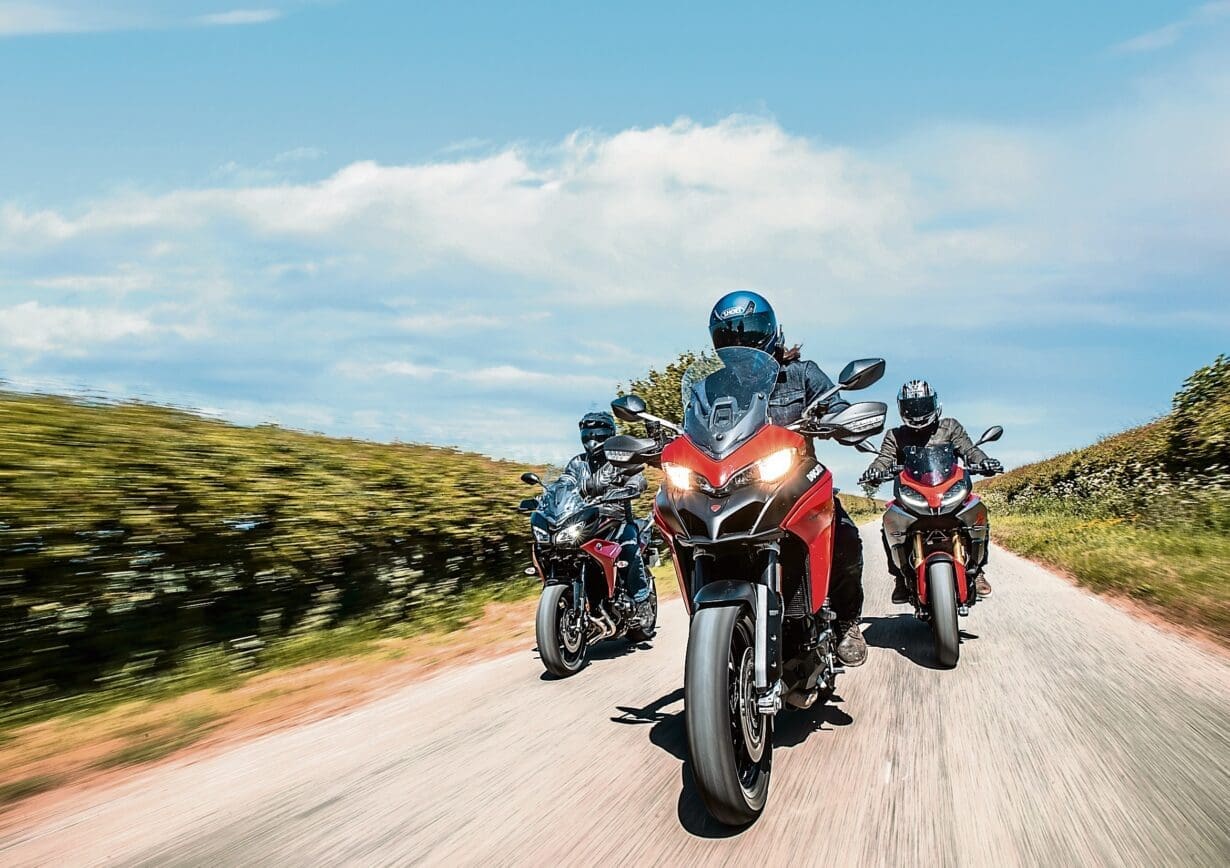There’s been a lot of talk of late about what fate will befall petrol-powered motorcycles. The Motorcycle Industry Association is better placed than most to make some educated predictions about the future. Here’s what you need to know.
The future is always uncertain, but as governments around the world push towards a cleaner, greener future, it’s becoming increasingly difficult to ascertain what’s going to happen to motorcycles and scooters with a good old-fashioned combustion engine.

Details about the cut-off date for new non-zero emission bikes are few and far between. There was a government consultation back in 2022 which proposed phasing out smaller-capacity machines by 2030, with bigger stuff meeting the same fate in 2035.
Enjoy everything More Bikes by reading the MoreBikes monthly newspaper. Click here to subscribe, or Read FREE Online.
Thankfully, it looks like nothing’s going to be happening immediately – and with Prime Minister Rishi Sunak recently announcing that the new cut-off-date for sales of new combustion-engine cars and vans will be extended from 2030 to 2035, there’s a glimmer of hope that we’ll still be able to bag ourselves a brand-new bike for a few more years yet.
However, a recent news story in the Telegraph suggests otherwise. It reported that ‘industry sources’ have informed the paper of plans to end the sale of new petrol-powered bikes by 2040, with mopeds set for the chop as soon as 2030. The Telegraph also claimed that the news would be announced soon.
But Tony Campbell, the CEO of the Motorcycle Industry Association, reckons nothing is set in stone just yet. “As the representative body for the industry, we are in constant dialogue with the Ministerial Team and Department for Transport (DfT) senior officials on all policy changes that will affect our sector.”
He added: “As an industry, we are confident Government is listening to our concerns and therefore when an announcement finally arrives, it will have taken into account the sector’s challenges and provide the timeline needed to develop the technologies that will be required to meet any future regulation.”
The Motorcycle Action Group (MAG) is taking a slightly different stance, and in its latest ‘Move on Motorcycling’ manifesto, calls for ‘a government that will move the national attitude toward motorcycling, embracing its sustainability benefits and positively encouraging its adoption’.
The document continues: ‘In short, we seek a government that will firmly break with the past, scrap the proposed ban on internal combustion engine-powered vehicles (ICEVs) along with the staged EV sales targets for manufacturers, and let motorcycling flourish.’
While sales of electric bikes are on the rise, they still account for a tiny number of all sales of two-wheelers. Electric mopeds do comparatively well, and last year accounted for around half of UK registrations. But when it comes to big bikes, things are still some way off – with just two per cent of sales in 2023 ‘emission-free’.
There’s still a chance that battery-power might not be the answer. The limitations with range, size and materials mean that some of the biggest names in the game are exploring other avenues. MotoGP’s making the move to synthetic fuels and Suzuki’s entering the Suzuka 8 Hours with a GSX-R1000R that runs on 40% bio-sourced material. The Japanese firm is also working with Kawasaki, Yamaha and Honda to investigate the viability of hydrogen power.
While we might not have all the answers just yet, it’s certain that things will be different in the future. But as long as we can keep riding bikes, it’s not going to be all bad.


